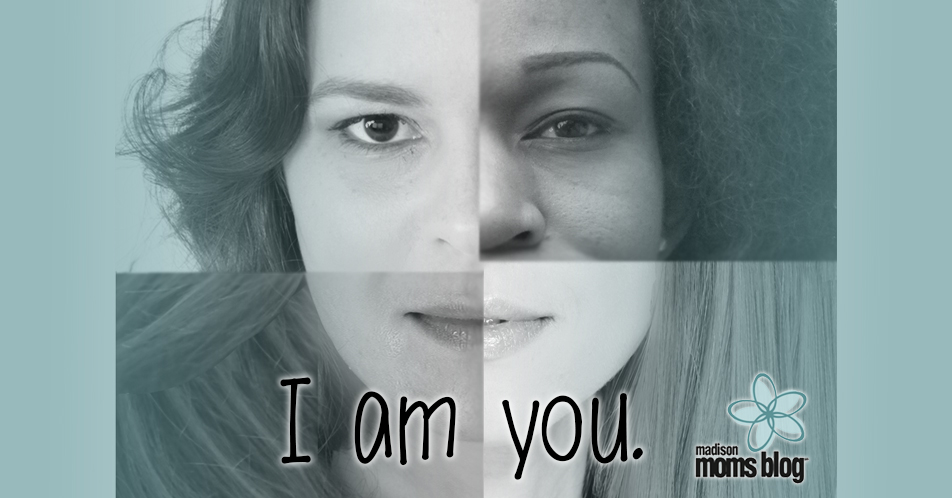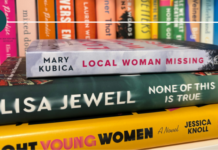 I see you.
I see you.
The couple going through an infertility battle. Leaving the clinic while my loud, sweet baby waits with me in plain sight in the middle of the lobby. I see her tensed face move into a wide, joyous smile, even if it’s painful to do so; surely it was full of tears a moment ago. His protective arm both hug and rush her out. He says something to her in an overly optimistic tone, just to get through the moment.
I’m sorry if being there caused you more pain. You are on a brutal, hopeful, nerve-wracking journey. I know we would never wish that on anyone. I’ve been the one that got pregnant without trying, but also the one that took years to become pregnant. In the TTC (trying to conceive) world, every month is a roller coaster; highs so blissful and then lows that make the whole story come crashing down. Another month and the highs aren’t quite so high, they’re bittersweet now, but the lows make you question why you would put yourself through this heart-wrenching ordeal. Then it happens, and the struggle was worth it all along.
We may be in different stages of parenting, but I see you and I empathize with your struggle.
He’s the baby I had to fight for and we named him after how he was born at the right time. His smile and laugh travel at warp speed through a room – I hope that somehow he could melt away a small bit of the stress you were feeling, if only for a little while.
I hear you.
The woman in the locker room with the full-spirited toddler. He comes pre-loaded full of tales: comical two-year-old antics and mishaps. Mom comes loaded with a heavy heart. I listen to Mom announce that they are moving… selling their house and going far away. They will stay with family while they search for a new neighborhood to call home. I empathize with her struggle because moving with kids in tow is just plain hard. It’s an emotional process: grieving the loss of the familiar and embracing a new life. But there was more.
Mom explains that the community she lives in is no place to raise a biracial family. My mind leapt into action wanting to talk her out of it and tell her how good it really was here!
Two years ago, we moved from a highly segregated metropolitan area, with some diversity, but severe economic issues. Our old school district is currently rated one of the worst districts in the state… the new district is in the top three. After the move, we were happily surprised to find our new community was actually much more diverse – my daughter’s 1st grade teacher said that there were seven different languages spoken in the homes of his students.
See? This is a great place to be! Look at all that we have going for us here! But I felt like I couldn’t say anything sitting next to my blue-eyed, blonde-haired little guy. What I really wanted to at least tell her was,
“I hear you when you say you feel out of place.”
I constantly feel out of place with my disability. We may not be in the same situation, but I empathize with your struggle. I sincerely hope that you find a community that feels like home. Everyone deserves a place like that.
I feel you.
What’s a parent to do when the kids leave the nest? Whether it be a temporary daily departure or a more permanent life change, the years leading up to their flight require so much selfless energy that it’s easy to get lost in that role. A parent’s roles and responsibilities shift sharply and a new self emerges – one who finally has time for self care. Just like many other jobs, the work requirements are frequently all-consuming (sometimes in an amazing, stars align, satisfying way) and when it’s suddenly taken away from you, you may start to question who you even are.
When I had to resign from my job due to health problems, I was suddenly smacked in the face with this question: “My daughter was in school all day, and I’m not able to work… what do I DO?!” My self-confidence disintegrated. I realized that how I valued myself as a person had everything to do with how I valued my job performance and satisfaction.
Now it’s my son’s turn to start daycare. We fully value the “it takes a village” mentality… but it’s the fact that he’s (temporarily) leaving the nest each day and I’m still not working that gets to me. I have to start from square one again. This process is overflowing with mom guilt and peppered with the crumpled bits of self-esteem scrambled up from before.
To all who watch their kids leave the nest, come back full of life and knowledge, but feel the acute sting of having a smaller role in all of that… I feel you.
Our situations may involve different age groups, but I empathize with you all the same.
I know you.
The postpartum mom who survived the tumultuous first couple of days or weeks, ready to find the rhythm of a new normal. When the worries, the random horrifying images, and the checking starts to plague your mind, I know those things too. Postpartum depression and anxiety are important things to bring forth and talk about; Lesser-known Postpartum OCD is the next common mental assailant.
Just over a week after having my baby, I went into the kitchen to make yet another bottle, and casually glanced outside to take in the nice weather. I saw something I couldn’t un-see; it was as if someone knew exactly the right place to position an easily triggering scene for a hormonal new mom to happen upon.
I safely gave the baby and bottle to my husband and promptly ran off to the furthest corner of my house. A complete meltdown panic attack followed, the worst one of my life. In the following days, I avoided going anywhere near that window. I’d wash my hands and make bottles elsewhere. When I could look out the window again, I started a new obsession – I had to constantly check and re-check for the incident. I’d do this with such frequency from one second to the next, I’d already shamefully diverted my eyes before I’d realized I’d done it again. The obsessive thoughts started seeping into the rest of my day too… basically anything I loved + anything dangerous/sharp/morbid/disgusting.
Please know that it is a fully involuntary mis-programming. Feeling so distressed over these thoughts is reason enough to know that these thoughts do NOT represent you as a person. My mental health providers used a combination of talk therapy and medications to help take the power back from these obsessive thoughts. I still struggle from time to time, but thankfully, I can tell you it gets so much better.
To everyone facing a mental illness, including OCD, and especially those in the very vulnerable postpartum phase of life, I empathize with your struggle.
I know these thoughts and I know the nightmare they can put you through. Please tell your doctor right away.
I am you.
I look different, I travel different, but I’ve been there, too. I’ve felt out of place, lost, burdened, and hopeless. These feelings don’t come in a one-size-fits-all package. Reach out to someone who doesn’t “fit the bill.”












